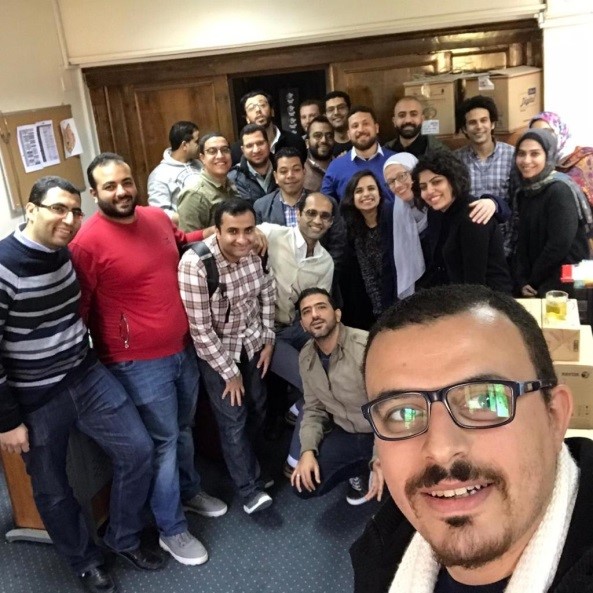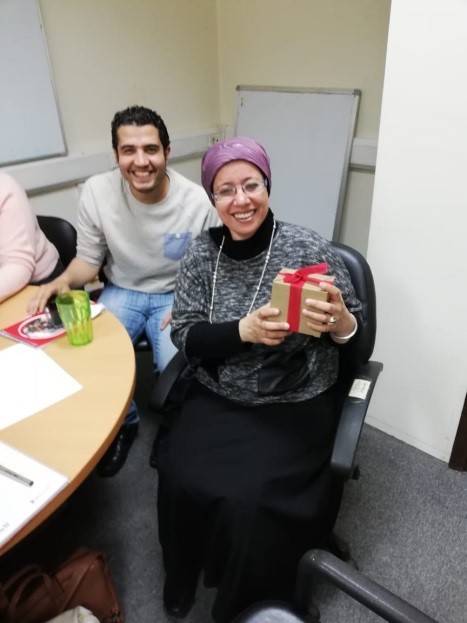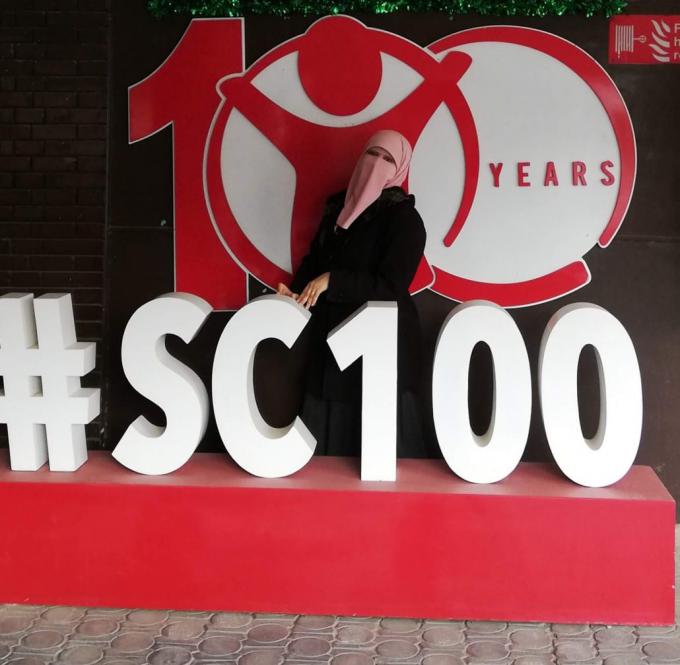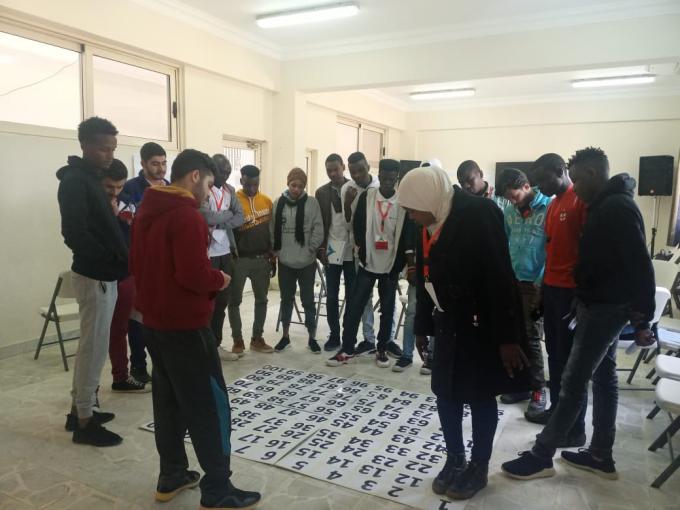World Humanitarian Day 2020: A thank you to our heroes!
On the 19th of August of each year, we mark World Humanitarian Day (WHD) to pay tribute to aid workers who exert every effort through humanitarian service. This WHD we want to highlight the efforts of our staff at Save the Children, during the COVID-19 pandemic. Despite making it harder than ever for humanitarians to stay and deliver for children and those most in need, our teams have remained present and more determined than ever.
Here are the stories of just a few of our heroes!
Ahmed Selim – Emergency Healthcare Coordinator

“When you save a person’s life, that’s a priceless and irreplaceable feeling,” Ahmed recalled one of the greatest successes of his team. A 16-year-old pregnant refugee screamed for help, after going in to labor with no one to help. “We received her call at the peak of coronavirus in Egypt. All hospitals were dedicating the majority of their workforce to corona patients, and most had already reached their maximum capacity. Before checking in to a hospital at that time, the patient had to undergo a CT scan to make sure that they’re not carrying the virus. Unfortunately, the girl’s scan showed some symptoms and she was rejected from all private hospitals.” Ahmed explained that for three days, the whole team worked sleeplessly with the Egyptian Ministry of Health and a number of public hospitals. The girl was still in labor pain and her body temperature began to rise. With no marriage documents, it is illegal for child birth to occur at any public hospital in Egypt. “I asked her relatives to sign an endorsement, to guarantee that they would keep the baby following its arrival, and they did.” Immediately, an ambulance transferred the girl to Al-Qasr Al-Aini Hospital, were she had a safe and natural delivery. “These were the hardest three days for me since I joined Save the Children two years ago. I couldn’t have saved this girl without the support of my team.” Ahmed and his team are always working around the clock to follow-up on sick refugees that are unable to obtain the necessary medical help they need.
Ahmed Hassan – Psychologist

Save the Children is always working to support the well-being of its whole community, especially in times of crises. “For unaccompanied children, the situation was even worse,” Ahmed explained. “These children suffer various forms of trauma before reaching out to us, and their only escape is keeping their time occupied.” Lockdown aggravated the suffering of these children, and this is why our Mental Health and Psychosocial support (MHPSS) teams exerted every effort to draw them back from depression. “It was challenging at first to find ways to keep them busy while at home. We conducted individual one-to-one sessions over the phone, to speak to each child about their feelings and problems, and how to approach even the negative times in a more positive manner. This experience taught me many lessons, but the most significant is that I can easily build a strong and trustful connection with these children, even if we are at a distance.” Ahmed has been working with African refugees for over a year, and provided support to Syrians when he first joined Save the Children two years ago. For him, the most motivating part of his job is conducting one-to-one sessions with children, to speak about their traumas or fears, and find ways to heal their pain. “When I sense the value of change in their personalities, feelings and actions, this is the greatest feeling of satisfaction for myself, and this is what motivates me to continue doing what I love.”
Fatma - Hotline Coordinator

“Before Covid-19, we received between 60-80 calls during our 12-hour shifts. Today, these numbers have doubled,” Fatma spoke about the obstacles she faced at the beginning of the crisis. “We operated 24 hours, all week.” Fatma has been a member of Save the Children’s Secondary Health Care project for two years. The projects targets refugees searching for medications or hospital referrals. “My job can be stressful at times, especially when I listen to the suffering of many callers, but I love what I do. When I receive thank you messages from the beneficiaries I supported, I acknowledge that I did good for the lives of others.” The hotline service provided by Save the Children is a vital and prominent part of our emergency work. Through it, we receive calls from people in desperate need of intervention or assistance.
Salwa - Education Facilitator

“When children are used to going to school every day, it’s understandable that switching to home schooling can be quite of a shock for them,” Salwa explained. After the Covid-19 pandemic forced schools to shutdown, Salwa and her team had to find alternative ways of learning. “I read a lot about online teaching, was given a number of training sessions through Save the Children on remote education, then adapted the school syllabus to the new online system with the support of my team.” Salwa also searched for creative and engaging activities to implement throughout her sessions. “I never imagined to be working in this situation and I am very proud of myself for learning and adapting to the change so quickly.” Salwa is a Sudanese teacher who previously worked with several projects within Save the Children, however, her career has been focused with unaccompanied children for a year. “I found myself very much in humanitarian work because I see myself as a source of inspiration and motivation for these children. They are very ambitious and energetic, but they are missing the guidance to help them direct this energy to the right place.”
 Egypt
Egypt